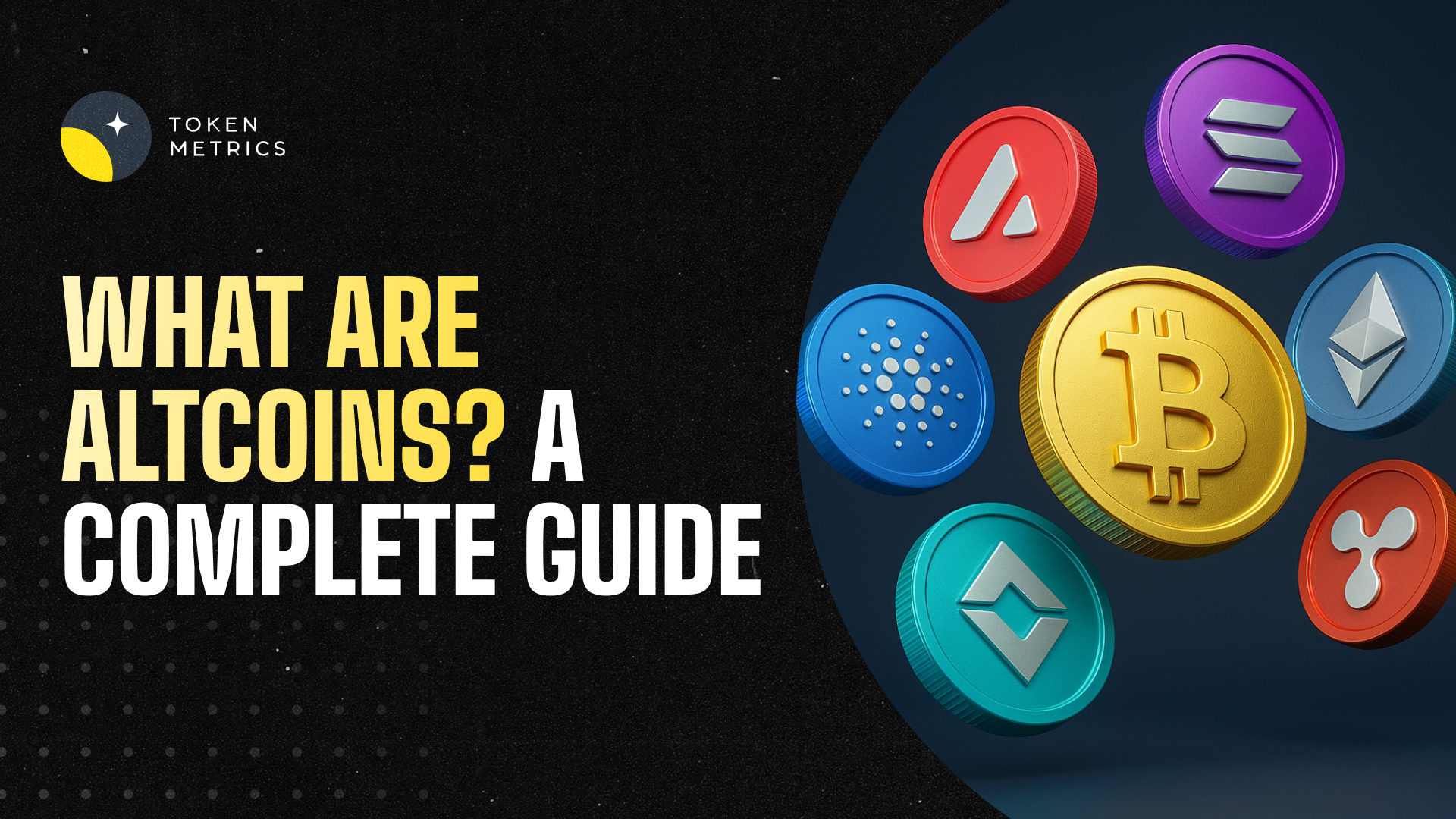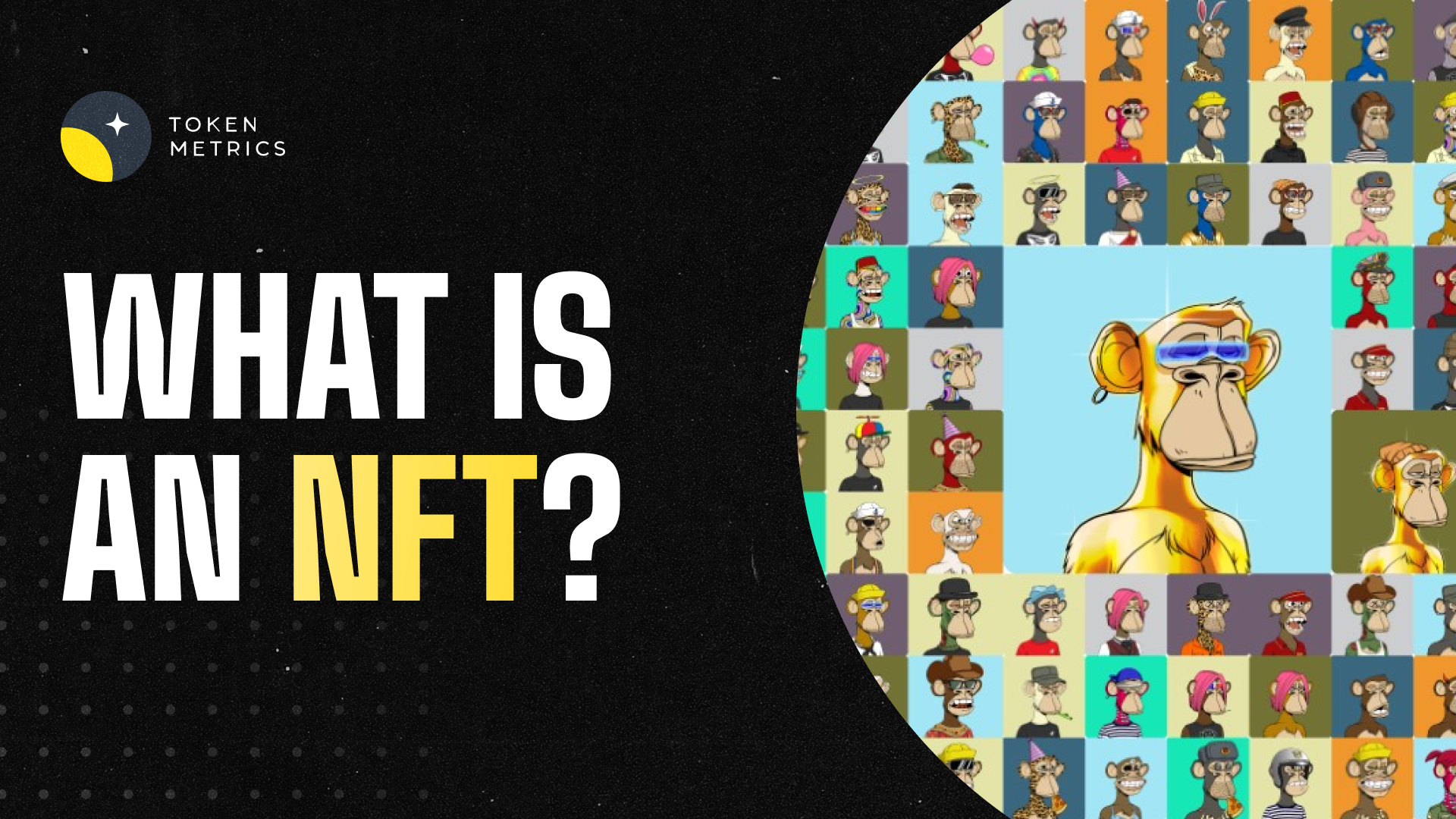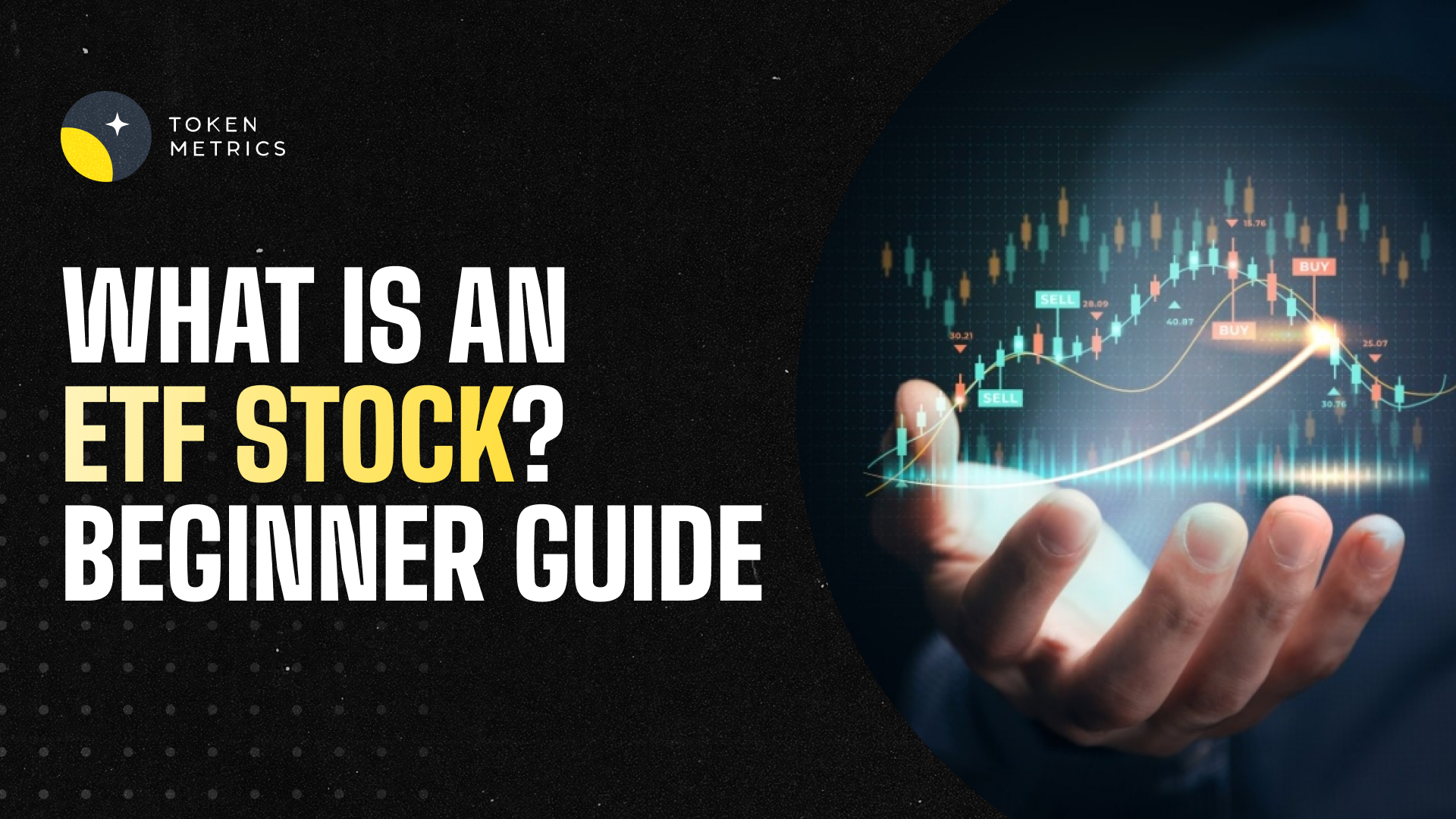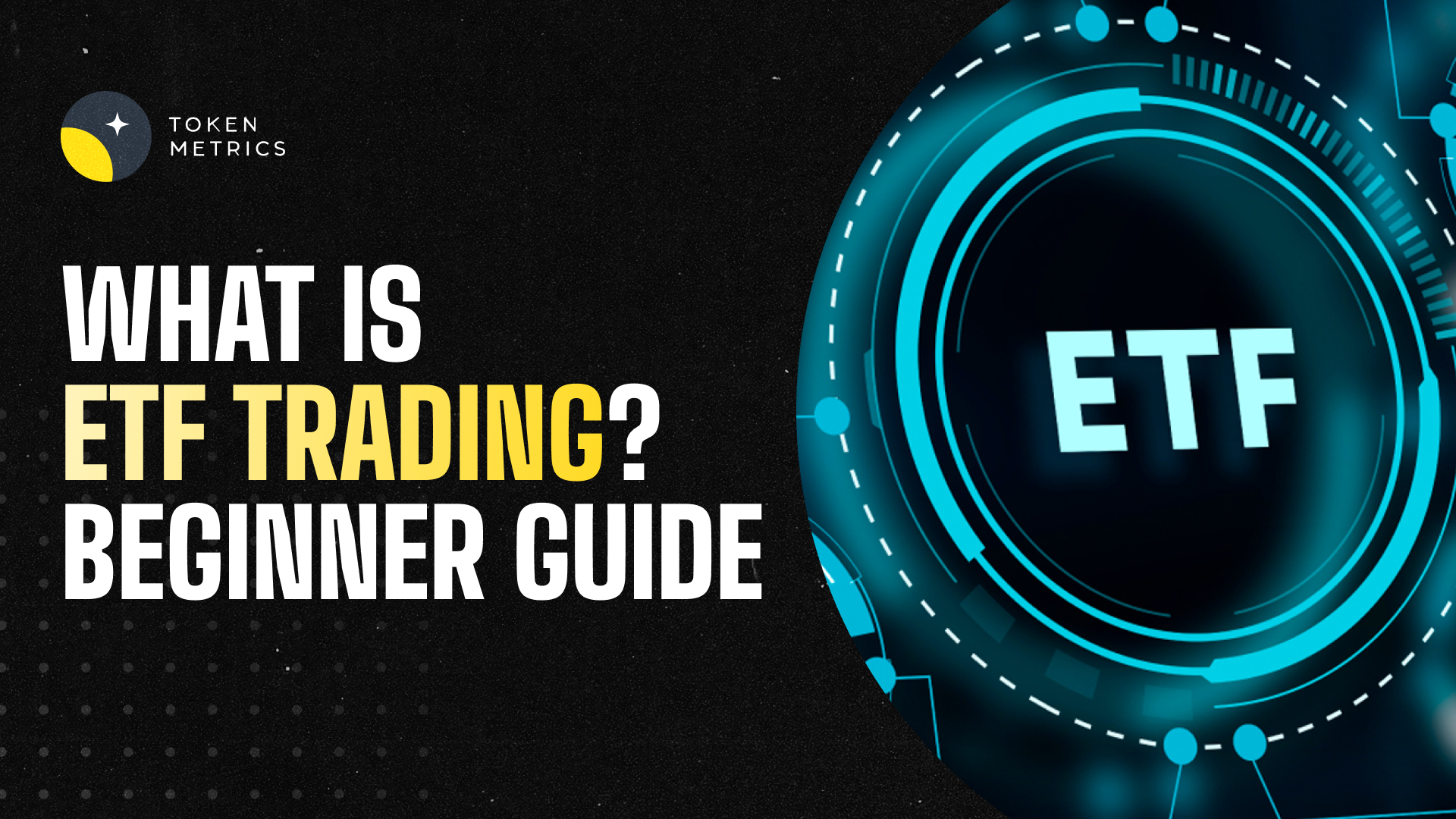What Are Altcoins? A Complete Guide to Alternative Cryptocurrencies in 2025


Table of contents
The cryptocurrency landscape has evolved dramatically since Bitcoin's inception in 2009. While Bitcoin remains the dominant digital currency, thousands of alternative cryptocurrencies, commonly known as "altcoins," have emerged to challenge its supremacy and offer unique solutions to various blockchain problems. Understanding altcoins is crucial for anyone looking to navigate the complex world of digital assets and cryptocurrency investing.
What Are Altcoins? Definition and Basic Concepts
Altcoins, short for "alternative coins," refer to any cryptocurrency that is not Bitcoin. The term encompasses all digital currencies developed after Bitcoin, regardless of their underlying technology, purpose, or market capitalization. From Ethereum's smart contract capabilities to Dogecoin's meme-inspired origins, altcoins represent the diverse evolution of blockchain technology beyond Bitcoin's original peer-to-peer electronic cash system.
The altcoin ecosystem emerged as developers recognized Bitcoin's limitations and sought to create improved versions or entirely different applications of blockchain technology. While Bitcoin established the foundation for decentralized digital currency, altcoins have expanded the possibilities to include smart contracts, faster transaction speeds, enhanced privacy features, and specialized use cases across various industries.
The History and Evolution of Altcoins
The first altcoin, Namecoin, launched in April 2011, introducing the concept of a decentralized domain name system. This marked the beginning of cryptocurrency diversification beyond Bitcoin's monetary focus. Litecoin followed in October 2011, promising faster transaction times and a different mining algorithm, earning the nickname "silver to Bitcoin's gold."
The real altcoin revolution began with Ethereum's launch in 2015, introducing smart contracts and enabling developers to build decentralized applications (dApps) on its blockchain. This innovation sparked the creation of thousands of new altcoins, each attempting to solve specific problems or serve particular market segments. The Initial Coin Offering (ICO) boom of 2017 further accelerated altcoin development, though it also led to numerous failed projects and regulatory scrutiny.
Types of Altcoins: Understanding the Categories
Utility Tokens
Utility tokens provide access to specific services or functions within a blockchain ecosystem. Examples include Chainlink (LINK), which powers decentralized oracle networks, and Basic Attention Token (BAT), used within the Brave browser ecosystem. These tokens derive value from their practical applications rather than serving primarily as stores of value.
Security Tokens
Security tokens represent ownership stakes in real-world assets or companies, similar to traditional securities but issued on blockchain platforms. They're subject to securities regulations and often provide dividends or voting rights to holders.
Stablecoins
Stablecoins are designed to maintain stable value by pegging to external assets like the US dollar, gold, or other commodities. Popular examples include Tether (USDT), USD Coin (USDC), and DAI. These coins serve as bridges between traditional finance and cryptocurrency markets, providing stability for trading and commerce.
Privacy Coins
Privacy-focused altcoins like Monero (XMR) and Zcash (ZEC) offer enhanced anonymity features, making transactions more difficult to trace compared to Bitcoin's pseudo-anonymous nature. These coins use advanced cryptographic techniques to protect user privacy.
Meme Coins
Meme coins like Dogecoin (DOGE) and Shiba Inu (SHIB) originated from internet memes but have gained significant market value and community support. While often dismissed as jokes, some meme coins have developed legitimate use cases and ecosystems.
How Altcoins Differ from Bitcoin
While Bitcoin focuses primarily on being a decentralized digital currency and store of value, altcoins often target specific problems or improvements. Key differences include:
Transaction Speed and Scalability: Many altcoins offer faster transaction processing times than Bitcoin's 10-minute block time. Solana can process thousands of transactions per second, while Bitcoin handles approximately seven.
Energy Efficiency: Bitcoin's Proof-of-Work consensus mechanism requires significant energy consumption. Many altcoins use alternative consensus mechanisms like Proof-of-Stake, which consume far less energy.
Smart Contract Functionality: Unlike Bitcoin's limited scripting capabilities, platforms like Ethereum, Cardano, and Solana enable complex smart contracts and decentralized applications.
Governance Models: Some altcoins incorporate on-chain governance systems, allowing token holders to vote on protocol changes and upgrades directly.
Popular Altcoins and Their Use Cases
Ethereum (ETH)
Ethereum remains the second-largest cryptocurrency by market capitalization and the leading smart contract platform. Its ecosystem hosts thousands of decentralized applications, from decentralized finance (DeFi) protocols to non-fungible token (NFT) marketplaces.
Binance Coin (BNB)
Originally created as a utility token for the Binance exchange, BNB has evolved into the native token of the BNB Chain ecosystem, supporting various DeFi applications and services.
Cardano (ADA)
Cardano positions itself as a research-driven blockchain platform focusing on sustainability, scalability, and peer-reviewed development. It uses a Proof-of-Stake consensus mechanism and emphasizes formal verification methods.
Solana (SOL)
Solana has gained attention for its high-speed, low-cost transactions, making it popular for DeFi applications, NFTs, and Web3 projects. Its unique Proof-of-History consensus mechanism enables exceptional throughput.
Polkadot (DOT)
Polkadot focuses on interoperability, allowing different blockchains to communicate and share information. Its parachain architecture enables specialized blockchains to connect to the main Polkadot network.
Benefits and Advantages of Altcoins
Altcoins offer several advantages over Bitcoin and traditional financial systems:
Innovation and Specialization: Altcoins can focus on specific use cases, from supply chain management to gaming, offering tailored solutions for various industries.
Lower Transaction Costs: Many altcoins provide significantly lower transaction fees compared to Bitcoin, making them more practical for everyday use and microtransactions.
Faster Processing Times: Improved consensus mechanisms and network architectures enable faster transaction confirmation times.
Enhanced Features: Smart contract capabilities, privacy features, and governance mechanisms expand the possibilities beyond simple value transfer.
Investment Opportunities: The altcoin market offers diverse investment opportunities with potentially higher returns, though with correspondingly higher risks.
Risks and Challenges of Investing in Altcoins
While altcoins present exciting opportunities, they also carry significant risks:
Higher Volatility: Altcoins often experience more dramatic price swings than Bitcoin, leading to potential for both substantial gains and losses.
Lower Liquidity: Many altcoins have lower trading volumes, making it potentially difficult to buy or sell large amounts without affecting the price.
Regulatory Uncertainty: Changing regulations could significantly impact altcoin values and usability, particularly for privacy coins and utility tokens.
Technology Risks: Newer blockchain technologies may contain bugs, vulnerabilities, or design flaws that could compromise security or functionality.
Market Manipulation: Smaller market capitalizations make some altcoins susceptible to manipulation by large holders or coordinated trading groups.
How to Evaluate and Choose Altcoins
When considering altcoin investments, several factors deserve careful evaluation:
Project Fundamentals: Examine the underlying technology, use case, and problem the altcoin aims to solve. Strong fundamentals indicate long-term viability.
Development Team: Research the experience and track record of the development team and advisors behind the project.
Community and Adoption: Active communities and real-world adoption indicate healthy project ecosystems and potential for growth.
Market Metrics: Analyze market capitalization, trading volume, and token distribution to understand the project's market position.
Partnerships and Integrations: Strategic partnerships with established companies or platforms can indicate legitimacy and growth potential.
The Future of Altcoins
The altcoin landscape continues evolving as blockchain technology matures and finds new applications. Key trends shaping the future include:
Interoperability Solutions: Projects focusing on connecting different blockchains will likely gain importance as the multi-chain future develops.
Central Bank Digital Currencies (CBDCs): Government-issued digital currencies may compete with or complement existing altcoins.
Environmental Sustainability: Eco-friendly consensus mechanisms and carbon-neutral projects will likely become increasingly important.
Institutional Adoption: As institutions embrace cryptocurrency, they may diversify beyond Bitcoin into altcoins with specific utility or superior technology.
Regulatory Clarity: Clear regulations will help legitimate projects thrive while eliminating fraudulent or non-compliant tokens.
Conclusion
Altcoins represent the innovative frontier of cryptocurrency, offering diverse solutions beyond Bitcoin's original vision of peer-to-peer electronic cash. From Ethereum's smart contracts to Solana's high-speed transactions, altcoins continue pushing the boundaries of blockchain technology and digital asset utility.
While altcoins present exciting opportunities for innovation and investment, they also carry significant risks that require careful consideration. Success in the altcoin space demands thorough research, risk management, and understanding of the underlying technologies and market dynamics.
As the cryptocurrency ecosystem matures, altcoins will likely play crucial roles in shaping the future of finance, technology, and digital interaction. Whether you're an investor, developer, or simply curious about cryptocurrency evolution, understanding altcoins is essential for navigating the digital asset landscape of tomorrow.

Create Your Free Token Metrics Account




Create Your Free Token Metrics Account





.png)
Power your platform with Token Metrics API
Access real-time crypto data, analytics, and grades.
Get Your Free API KeyCreate Your Free Token Metrics Account


Create Your Free Token Metrics Account














.png)
%201%20(1).png)

.png)


.svg)




.png)